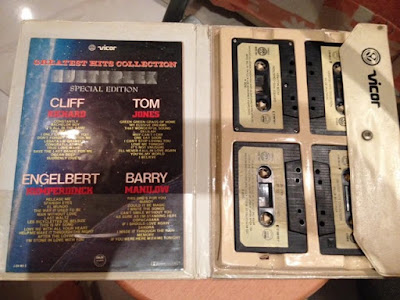Developing One's Vocabulary
I remember when I was a child, mom would always say "Tignan mo sa dictionary." My curious mind would always wonder about the meaning of new words heard or read somewhere. Back then, I didn't appreciate her consistent response, but as I grew older (and so did my love for books), this tip became a habit. But gone were the days when I literally grabbed my Merriam-Webster dictionary. Today, we can quickly Google it or when I'm offline, the Merriam-Webster app is my go-to.
Do you bother to stop what you're reading to check definitions of an unfamiliar word? Or do you list the words so you could check later, and go with context clues in the meantime? Both of these work for me. Also, I challenge myself to use the words or phrases I learned in sentences, whenever applicable. This doesn't mean that you have to use difficult words just to impress. Make sure that these are still appropriate to the context.
I also credit my then English teacher, Ma'am Joyce, for introducing the book "Instant Word Power" to our class. One of the best techniques to enrich one's vocabulary is by understanding etymology. For example, words that have "pod" or "ped" are connected to the feet such as tripod and podiatrist.
Now let me list some of the things that I looked up when I started working:
1. "My way or the highway" - Accept someone's offer or suffer consequences; Take it or leave it
2. "go it alone" - act by oneself without assistance
3. "nip snags in the bud" - to stop something at an early stage
4. disparate - essentially different and not allowing comparison
5. "Halo and horns effect" - when our first impression leads us to a biased positive or negative opinion on another person
6. glide path - a series of events or actions leading smoothly to a particular outcome
7. "passed over for promotion" - Someone younger or lower in the organization was given the opportunity
8. sounding board - a person whose reactions to suggestions are used as a test of the validity of ideas or likely success before they are made public
9. "no point getting worked up about" - no point getting very excited or upset about something
As I would always say, learning never stops. So during communication training, when learners ask me about secrets in enriching one's vocabulary, I tell them that it takes time to develop a habit and one of the things we can do is more exposure to reading materials and resources on YouTube.



Comments